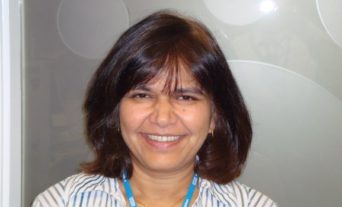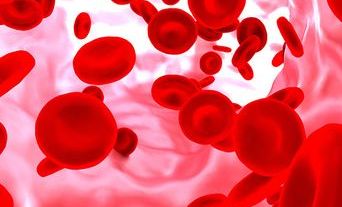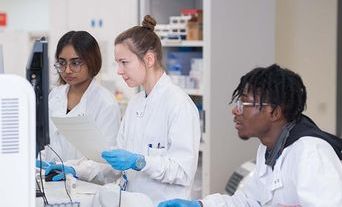The College’s evolving mission
As we approach one year since the death of the College’s Patron, Her Late Majesty Queen Elizabeth II, we await news about the allocation of a new royal patron.1 But why does the royal connection matter? Well, it’s all about the Charter.
In 1963, the College was endowed with a Royal Charter, which clearly set out objects for the College.
- Advance the science and practice of pathology.
- Further public education therein.
- Promote study and research work in pathology and related subjects and publish the results of such study and research.2
Promoting the interests of pathologists is not in the list of objects, but those who are members of the BMA and other unions are represented by these bodies. However, I am sure we would all agree with the many NHS reviews of patient safety which make clear that engaged and motivated staff provide safer care. In the words of management guru Roy Lilley, “How do we fix the NHS? Ask frontline staff.”3
As part of its role to promote the science and practice of pathology, the College has an important role in engaging and educating the people who make national policies and laws (i.e. politicians and senior officials in the departments of health, regulators, etc.)
How the College engages with members
Understanding the issues and concerns of pathologists at the coalface of service delivery is one of the ways the College can hope to help to improve pathology services. This is undertaken in several ways. Members can always contact College staff and office-bearers through [email protected] and other email addresses on the website. Or they can amplify their views and opinions by self-nominating for positions on committees or honorary officer roles. In addition, members in Northern Ireland, Wales and Scotland have their College regional committees, which allow both the airing of members’ views and engagement with policy and law makers in the devolved administrations.
In England, the position is different. The College considered the concept of an English Regional Council for a while. The England Regional Council (ERC) was formed in 2016 with ambitions to represent the members and fellows of the College in England through a structure of regional advisors working with the 4 English regional representatives who are elected to College Council. It was designed to work alongside successfully operating regional councils in Northern Ireland, Scotland and Wales. The ERC was chaired initially by Dr Suzy Lishman and subsequently by Professor Kate Gould. However, following a survey of English members, the ERC itself decided to disband its formal structure – a decision confirmed by College Council in November 2020.
Finding a new way to communicate with members
With the ERC now disbanded, the four new regionally elected College Council representatives, Dr Ali Robb, Dr Negar Maghsoodi, Dr Laszlo Igali and I, had to find a way to engage with English members.
For the benefit of London members, I proposed to set up a series of virtual surgeries, similar to those held by Members of Parliament, and this idea was taken up by my colleagues. The surgeries were publicised by email to the members registered by the College as working in the region. They were chaired by the regional reps and lasted several hours, but members themselves were able to join these meetings as and when they were able to get away from service commitments and did not have to stay for the whole surgery.
Despite issues with the interface between the College Teams and NHS Teams, these surgeries mostly went ahead as planned and the virtual format meant minimal loss of service time to this College activity.
What issues are members facing?
Some College members would join with a specific issue in mind to raise with the College while others merely enjoyed the opportunity to ‘meet’ with colleagues and take part in discussions about matters of mutual interest. For the North of England, Dr Ali Robb is arranging a regional symposium in October and set up a regional newsletter summarising the issues of the day, for which I and the members in my region are very grateful.
The surgeries, email conversations, reports provided by the regional representatives to College Council and Dr Robb’s newsletters have informed many topics with key examples, including issues raised by members, shown in Box 1.
Box 1. Key topics raised via the four regional councils in England.
- National infection prevention and control guidance and the impact of the COVID-19 pandemic.
- The lack of COVID testing for healthcare and travel.
- Being chased for responses to workforce surveys by the British Infection Association/RCPath and a lack of output from responses.
- Lack of consultation and several years’ delay in producing finalised versions of workload guidance.
- Integrated Care System (ICS)/Integrated Care Board (ICB) representation of pathology. This includes the resurgence of regional pathology networks that are not aligned with the geography of ICSs/ICBs, and job planning ramifications of networks and increasing hub and spoke models of working.
- Difficulties in fielding post-mortem pathologists.
- The lack of centralised funding to mitigate the running costs of digital pathology programmes.
- The impact of the Omicron variant of COVID-19 on staffing across departments and resulting delays.
- The need for more College-produced clinical guidance, educational events and improved speed of responses from committee chairs.
- Costs of fees for continuing professional development (CPD) events being prohibitive for those not able to access training/CPD funding, for example clinical scientists who are not in training programmes.
- Issues with biochemistry and cellular pathology examinations and the impact on training times.
- Re-allocation of National Training Numbers with some regions ‘winning’ and some ‘losing’ and the subsequent impact on smaller specialties.
- Lack of a lead examiner for immunology.
- Costs of College annual fees and the charge for paying by Direct Debit.
- Insufficient pay for on-call.
- Resistance to developing scientific roles/recognition in College role advertisements. Request to develop job descriptions for non-consultant and non-training positions.
- College approach to academia and research. Concerns that the training programme disadvantages academics, especially the surgical component of Stage D.
- Concerns around equivalence, refugee status and CESR applications.
- Pensions and the impact of early retirements on the workforce.
- Perceived London/race/nationality bias in presidential elections.
Overall, College members were extremely concerned about workload and workforce issues and these themes recurred frequently in email communications and in surgeries. But it was not all bad news. The positive way in which the College and its membership had pulled together in response to the COVID-19 pandemic was a subject of well deserved pride. There was a sense of pleasure in the Diamond Jubilee College celebrations in 2022.
The Pathology Portal was seen as a tremendous achievement improved by feedback from trainees and the appointment of the new College Member Engagement and Support Manager, Steve Rainbird, and his team was hugely welcomed.
Bringing members’ issues to decision-makers
To help influence regional decision-makers in England, 90 letters were sent by the regional representatives to Integrated Care System (ICS) leads and chairs in the 42 ICSs in England. These were used to introduce the College’s regional representatives and explore opportunities to promote pathology engagement and input into ICS meetings. In the way of the NHS in England, there have already been several mergers and changes of the management structure in the ICSs and this will need to be repeated when the new English regional representatives take up post.
For some years the College had been considering whether its powers of persuasion would be enhanced by an All-Party Parliamentary Group (APPG) to raise awareness at Westminster of pathology issues. APPGs are informal, crossparty groups formed by MPs and Members of the House of Lords who share a common interest in a particular policy area, region or country.
In conjunction with the Royal College of Radiologists (RCR) who were thinking along similar lines, the APPG on Diagnostics was formed with the help and guidance of Janine Aldridge, the College’s Public Affairs Officer. The APPG for Diagnostics was set up to highlight the benefits and promote the greater use of diagnostic testing, and to further promote the diagnostics profession.
The setting up of the APPG for Diagnostics was a huge achievement. Regular contact with members of the Houses of Commons and Lords is exactly what is needed to meet the object in the College Charter of advancing the science and practice of pathology at a national level.
The APPG has been established, chaired by Maggie Throup MP, and is supported by the College and RCR. It has so far had two meetings in addition to 2 roundtables to investigate the state of the Community Diagnostic Centres (CDCs) programme. (The establishment of Community Diagnostic Centres and Hubs is an English NHS programme instituted by the government.)
It is early days for the APPG but a report on CDCs and the experience of members who are involved in them is scheduled to be published in autumn. Although to my knowledge members have not raised concerns with regional representatives around this topic, in a recent College survey, members flagged the increase in workload from CDCs and its impact. The APPG will provide an output to raise these issues with Members of Parliament.
How to represent your region
The 4 English regional representatives complete their terms of office on 18 November 2023 at the College Annual General Meeting and readers are encouraged to consider putting themselves forward. It has been a huge privilege to represent you and an incredibly educational experience that I would recommend to anyone who is considering it now or in the future.




